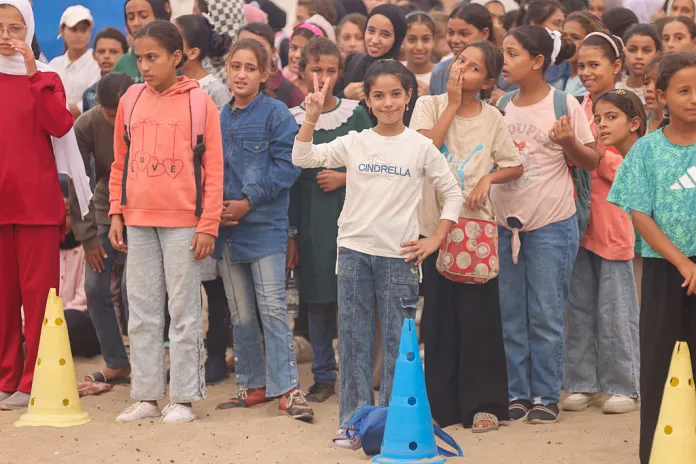


Try a small thought experiment. Suppose you were setting out to design a country that bred lots of terrorists. How would you go about it? You would need old animosities, of course, but there are plenty of places in the world that offer those. The key thing, I suggest, would be to prevent any commercial activity, to give young men nothing to distract them from their grievances, and to humiliate them by making them dependent on handouts from foreigners.
You would, in short, create something very like the Gaza Strip, where private-sector activity is minimal, international trade is nonexistent, and local people get the highest share of per capita foreign aid on the planet.
Recommended Stories
- Former McDonald's employee brokers historic peace deal between Israel and Hamas
- On Trump, Comey, lawfare, and 'revenge'
- Are Democrats the party of murder?
Now imagine the alternative: a capitalist Gaza, connected to global markets through those “preferred tariff and access rates” that President Donald Trump promises as part of his peace settlement. Would it not be an altogether more stable and peaceful neighbor? Its businessmen would want to stay on good terms with their customers, most of whom would be in Israel. They would not tolerate freelance rocket-launchers who might attract retaliation. Smart kids would be free to set up halal drive-thrus instead of turning to violence.

The only way it might happen — it’s still a long shot, but it’s looking closer than ever before — would be for the government of Gaza to be lifted permanently out of the hands of the terrorist militiamen who brought the cataclysm upon their people. The Strip needs to be taken into receivership, so to speak, governed by outsiders who will oversee a deradicalization program of the kind that Germans went through after 1945 — though it will have to be deeper, given Gaza’s lack of democratic muscle-memory.
If Trump succeeds in implementing his draft peace terms, I will forgive a great deal. I will ignore the way Marco Rubio passed him a note telling him to announce the deal on Truth Social. I will disregard the way we have normalized a president making important announcements, not just on social media, but on a social media site from which he makes a profit. Heck, I’ll even overlook his readiness to accept a private jet from a foreign government.
Trump seems, on this occasion, genuinely to have taken a risk for peace. He could have backed Benjamin Netanyahu, whose determination to prolong the war rather than reach a deal was keeping him in office, but turning the world against his country. Instead, for all his public attacks on Hamas, Trump forced the Israeli leader to the table.
The breakthrough, paradoxically, came with Israel’s decision to bomb Hamas targets in Doha — an attack that infuriated the U.S. administration and outraged every state in the region, including those Arab monarchies that had previously been quietly helpful to Israel.
Think about how Western governments usually react to extraterritorial killings. Recall our response to, say, Russia’s readiness to strike at targets in the Baltic States and London. By refusing to recognize territorial jurisdiction, Russian President Vladimir Putin put himself outside the comity of nations.
Netanyahu had been chided by his friends for doing the same in Syria and Yemen. Israel, or so its allies warned, was behaving like a rogue state. When Netanyahu went further and violated the sovereignty of Qatar, a U.S. partner and the country overseeing the mediation, he crossed a line.
The war has been disastrous for all sides. For Palestinians, obviously, who have suffered civilian fatalities on a scale that is hard to take in. But also for Israel, which has lost the goodwill of a generation. People of my age (born 1971) tend to see the Jewish state as a beleaguered democracy, one of the few places in the region governed by law. But young people, radicalized by the current conflict, see things very differently. I include young conservatives and, indeed, young American Jews, most of whom tell pollsters that they think Israel is carrying out war crimes.
The hardliners will struggle to let go. Shouting “Free Free Palestine” has become part of their identity. If a lasting peace takes hold, what will wearing a keffiyeh mean anymore?
WHY IS FREE TRADE GOOD FOR GAZA BUT BAD FOR THE US?
The rest of us, though, should pray for the end of a conflict which, calamitous in itself, also turned much of the world against the West and, indeed, unsettled Western countries, agitating their own populations and prompting a revival of antipathy — whether against Muslims or Jews — that they had not known before.
Might it all finally be over? We still have a long way to go. Still, Im Yirtze Hashem and Inshallah, we are on track.
